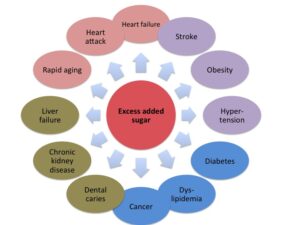Physical Address
304 North Cardinal St.
Dorchester Center, MA 02124

Cardiovascular disease refers to various heart and blood vessel disorders. It is the leading cause of death globally and encompasses conditions like coronary artery disease and heart failure.
These ailments are vital public health concerns that affect large populations, leading to significant morbidity and mortality. Understanding cardiovascular diseases is crucial for prevention, diagnosis, and management, requiring a balance of lifestyle modifications and medical treatment to improve patient outcomes.
Expertise in cardiovascular health is essential for reducing the burden of these diseases through education, research, and patient care. Recognizing the symptoms early, such as chest pain and breathlessness, enables timely intervention and better management of the disease.
Cardiovascular disease encompasses a range of heart and vessel conditions. It often leads to myths and misunderstandings. Let’s debunk some common misconceptions about this complex set of diseases.
Many believe that a diagnosis of a heart condition means their life is over. This is not true. With modern medicine and lifestyle changes, people can live long and fulfilling lives. The key lies in managing the condition with the help of healthcare professionals and maintaining a heart-healthy lifestyle.
Adopting these habits can significantly improve quality of life and even extend it.
While some people think heart disease can be completely cured, this is not the case for most types of cardiovascular diseases. Treatment and management strategies can control symptoms and reduce risks but not cure the disease entirely.
| Condition | Treatment | Cure Possible? |
|---|---|---|
| Coronary artery disease | Lifestyle modification, medication, surgery | No |
| Hypertension | Medication, lifestyle change | No, but controllable |
| Heart failure | Medication, device therapy | No, requires lifelong management |
Treatment focuses on improving symptoms and preventing further damage rather than a cure.

Credit: www.templehealth.org
When it comes to living with heart conditions, the journey is unique for each individual. Despite the advances in medical technology, heart conditions often require ongoing management. In this section, we delve into the everyday challenges one might face and the effects they have on personal and social fronts.
Adapting to life after a heart condition diagnosis means redefining normalcy. These changes may include:
Such adjustments are pivotal for maintaining heart health and preventing further complications.
A heart condition does not just affect the individual; it has a ripple effect on everyone close to them. Here are some ways family and social dynamics might change:
| Aspect | Impact |
|---|---|
| Emotional Support | Families may need to offer more encouragement and understanding. |
| Caregiving Roles | Members might take on new responsibilities, such as helping with medical tasks. |
| Social Activities | Group events may require special consideration for the affected family member. |
Communication and teamwork become essential in managing these new dynamics effectively.
Remember, taking small but consistent steps can help manage the condition effectively. Embrace the support of loved ones, and maintain a positive outlook for a healthier life ahead.
Understanding the nuances of Cardiovascular Disease treatment is critical for effective management and patient well-being. Many hold misconceptions about curing and managing this condition. Let’s debunk some of the common treatment misbeliefs.
Tackling Cardiovascular Disease often brings a mix-up between cure and management. Some patients believe taking medication or undergoing surgery spells the end of their condition.
Understanding the chronic nature of most cardiovascular conditions is essential.
Lifestyle modifications stand as pillars in managing heart disease.
| Area | Changes |
|---|---|
| Diet | Low salt, fat, and cholesterol, high in fruits and vegetables |
| Exercise | Regular, moderate-intensity activities |
| Smoking | Cessation is crucial for improving health outcomes |
Small steps in daily habits can lead to significant heart health improvements.
Cardiovascular disease cloaks itself in unpredictability. Many miss the early signs, while others fall prey to the misconception that it strikes without warning. Understanding the truth behind these fallacies is critical for early detection and effective management.
Many ignore subtle hints their bodies give about cardiovascular health. The signs may be silent or easily dismissed, yet they hold the key to preventing severe outcomes.
The belief that cardiovascular disease manifests abruptly is a perilous myth. Subtle progressions often precede what appears to be a ‘sudden’ event.
| Myth | Reality |
|---|---|
| Heart disease strikes out of nowhere. | Most cases develop over time and stem from modifiable lifestyle choices and genetic predispositions. |
| Only older adults are at risk. | Risk factors can affect any age group, making early lifestyle interventions vital. |
| No symptoms mean no disease. | Asymptomatic phases do not equate to a healthy cardiovascular system. |
Regular health check-ups and awareness of individual risk factors shatter this myth and encourage proactive healthcare measures.
Discussing the prognosis and life expectancy for someone with cardiovascular disease (CVD) is crucial. People often worry about how CVD will affect their long-term health and survival. Several factors impact prognosis, including age, lifestyle, and treatment compliance. Knowledge and action can positively influence outcomes.
A common myth is that a CVD diagnosis means a shortened lifespan. While CVD can be serious, modern medicine and lifestyle changes can lead to a hopeful outlook. People with CVD live stronger and longer lives today than ever before.
Changing certain aspects of your life can have a powerful impact on living with CVD. Here are key changes known to improve prognosis:
By making these changes, individuals can see marked improvements in their health, challenging the notion that CVD determines a person’s fate.

Credit: www.amazon.com
The Broader Scope of Cardiovascular Health involves understanding a vast array of conditions that threaten the heart and vascular system. The impact of these diseases spans across continents, affecting millions of lives. A deeper look into the variety of conditions and their global prevalence reveals the magnitude of the challenge facing today’s health systems.
Cardiovascular diseases (CVD) encompass a range of disorders affecting the heart and blood vessels. Each condition presents unique challenges and risks.
CVD remains the top cause of global mortality, showing just how widespread these conditions are.
| Region | CVD Deaths (per year) | Population Affected |
|---|---|---|
| Americas | 2 million | 89 million |
| Europe | 4 million | 120 million |
| Western Pacific | 3.7 million | 75 million |
| South-East Asia | 3.8 million | 70 million |
| Africa | 1 million | 45 million |
Despite improvements in some regions, the battle against CVD continues. It calls for preventive measures, robust healthcare policies, and increased awareness.

Credit: www.onepeloton.com
Yes, many individuals with cardiovascular disease lead normal lives with proper treatment, lifestyle changes, and regular medical care.
Cardiovascular disease cannot be completely cured, but symptoms can be managed and progression slowed through lifestyle changes and medications.
Three signs and symptoms of cardiovascular disease include chest pain, shortness of breath, and swelling in the legs or feet.
Yes, you can live a full life with CAD by managing risk factors and adhering to treatment plans.
Understanding the risks and symptoms of cardiovascular disease is crucial for prevention and management. Embracing a heart-healthy lifestyle and seeking regular medical advice can be life-extending. Let’s prioritize our heart health to lead vibrant, fulfilling lives, undeterred by the challenges of cardiovascular disease.
Remember, every step toward a healthier heart is a step toward a healthier future.

